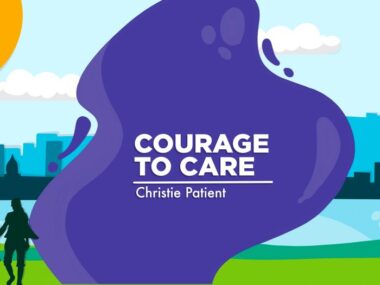Disruptions in pharmacy services pose major issues for patients
A recent cyberattack left me seeking alternate sources of my medication
Written by |

The journey of a pulmonary fibrosis patient and a post-transplant patient have one big thing in common: We must take the correct dose of the proper medications at the appropriate time. So what happens when much of the pharmacy infrastructure fails on a random weekday?
Medication management is one of the fundamental lessons all patients must master from the beginning. In my case, it’s been a team effort with my wife, Susan, to prepare my medication tray each week. We established this practice shortly after my diagnosis with idiopathic pulmonary fibrosis (IPF) in January 2017, and it continues today following my bilateral lung transplant in July 2021.
I track my medications meticulously using a Microsoft Excel spreadsheet so I can place timely refill orders with my pharmacy or request new prescriptions from my care team. This system has served Susan and me well for more than seven years. There hasn’t been a single instance when I’ve run out of a medication.
An unexpected complication
On Feb. 21, much of the pharmacy cyberinfrastructure in the United States came under attack. Unfortunately, as the story began to develop, the AT&T service outage took over the headlines during the early hours of Feb. 22. While I enjoy the convenience of my cellphone, my life depends on my medications.
The ransomware attack on Change Healthcare — a part of UnitedHealth Group (UHG) that provides healthcare technology — affected the ability of healthcare providers, hospitals, laboratories, and pharmacies across the country to process payments and bill health insurance companies. Many of these providers had to resort to manual processing or other workarounds.
To convey the scope of this outage, the personal finance website Kiplinger reported that, according to UHG, “more than 90% of the nation’s 70,000-plus pharmacies have modified electronic claim processing to mitigate impacts from the incident and that the remainder have offline processing workarounds.” These workarounds allowed pharmacy chains like CVS to continue filling prescriptions.
The cyberattack also affected military clinics, hospitals, and pharmacies worldwide — including my Department of Defense (DOD) pharmacy.
Reuters noted on Feb. 26 that the American Pharmacists Association was reporting “significant backlogs of prescriptions.” As of Feb. 29, the weeklong outage was still preventing some hospitals from processing payments and keeping many healthcare providers from being paid. Some pharmacies continue to use workarounds to fill prescriptions.
Be prepared
Back in February, I’d begun my regular refill process for three of my medications and requested three new prescriptions from my care team. Normally, I receive text message alerts when my order is ready. When those messages didn’t arrive, I called my DOD pharmacy and learned of the issues with its payment processing system.
At this point, I was a week beyond when I needed those six prescriptions in hand.
I knew my options for medication coverage: I could order from Express Scripts, which is the mail-order provider for my DOD pharmacy system, or I could visit a retail pharmacy like CVS. But because of the scope of the ransomware attack, both Express Scripts and my local CVS were affected and using workarounds.
What now?
I elected to drive to my DOD pharmacy with all the information on my prescriptions. Once I arrived, it took a little more than three hours to process and receive my medications.
Those medicines are necessary for me as a post-transplant patient, but so are the medicines prescribed to all other patients, regardless of their health condition.
Ask your care team for advice on dealing with any difficulties accessing your medication. Ask if they have samples of the drug that can be provided in the short term. Ask if they can recommend an alternate source for obtaining medications. Ask how you should request prescriptions if you must use that alternate source.
This outage caught me unprepared. According to the Kiplinger article I referenced above, cyberattacks in the healthcare industry continue to increase. I’ve now taken steps to ensure I know what to do if this happens again. Being better prepared is how I can make every breath count.
Were you impacted by the ransomware attack that disrupted pharmacy services? Please share in the comments below.
Note: Pulmonary Fibrosis News is strictly a news and information website about the disease. It does not provide medical advice, diagnosis, or treatment. This content is not intended to be a substitute for professional medical advice, diagnosis, or treatment. Always seek the advice of your physician or other qualified health provider with any questions you may have regarding a medical condition. Never disregard professional medical advice or delay in seeking it because of something you have read on this website. The opinions expressed in this column are not those of Pulmonary Fibrosis News or its parent company, Bionews, and are intended to spark discussion about issues pertaining to pulmonary fibrosis.







Leave a comment
Fill in the required fields to post. Your email address will not be published.